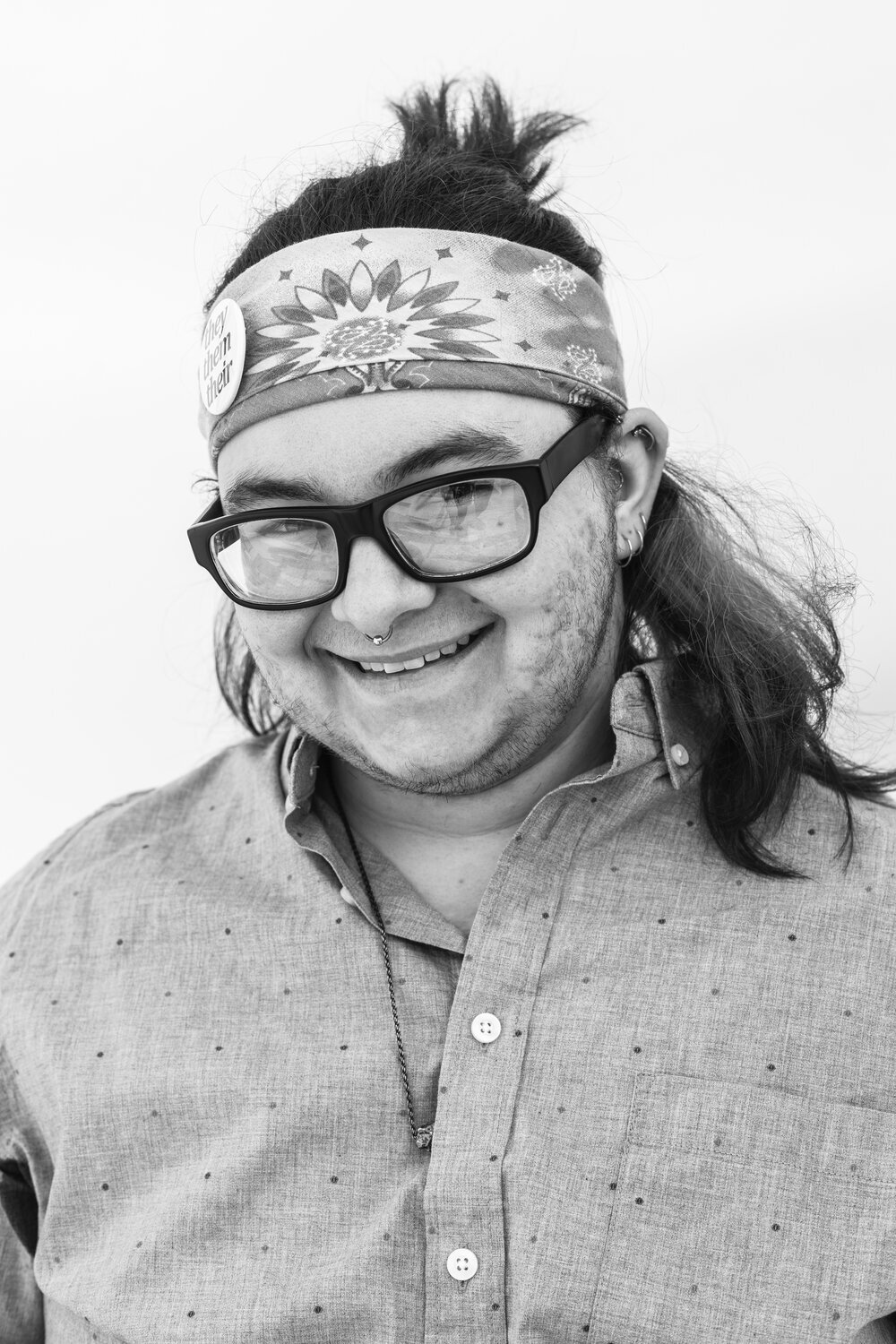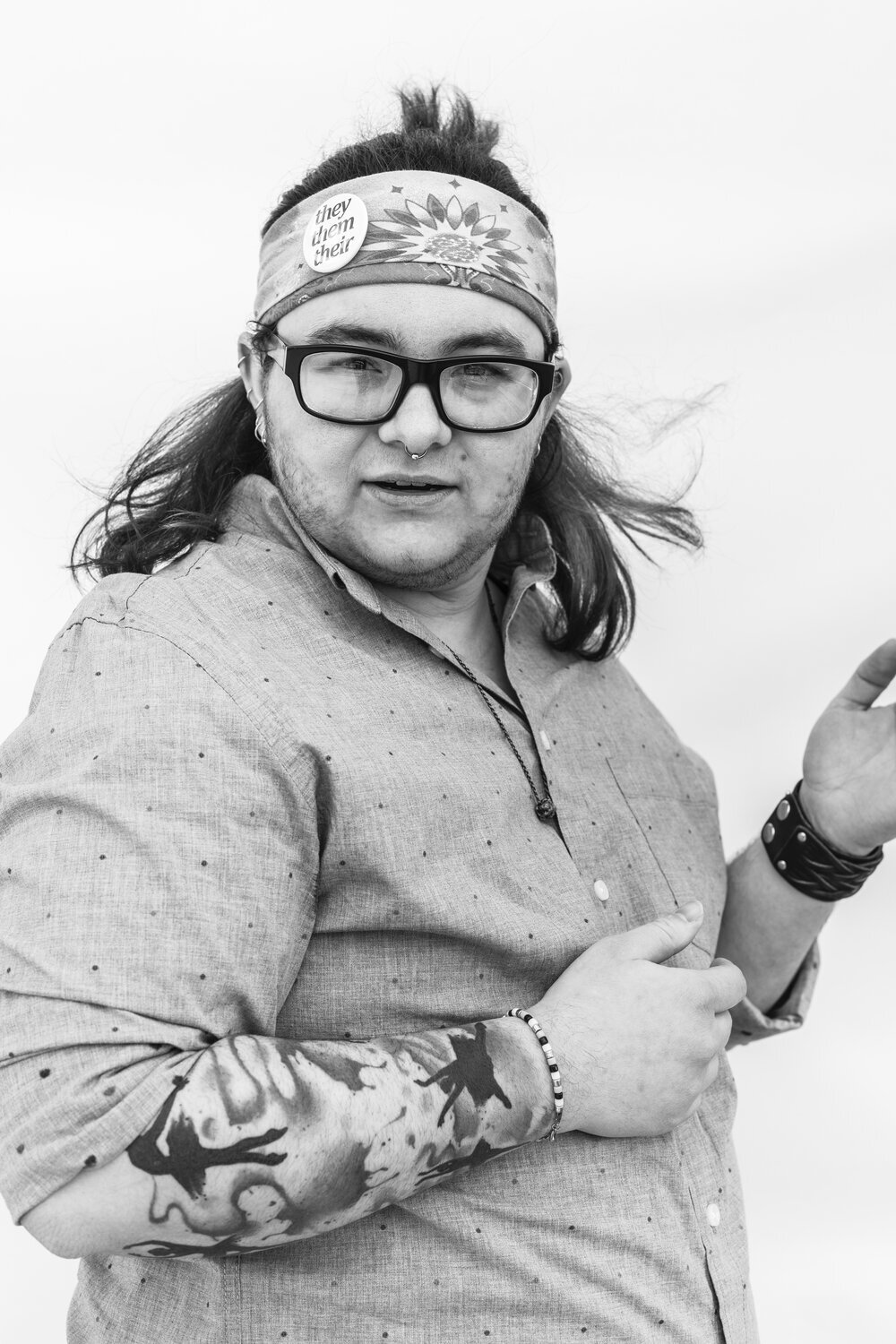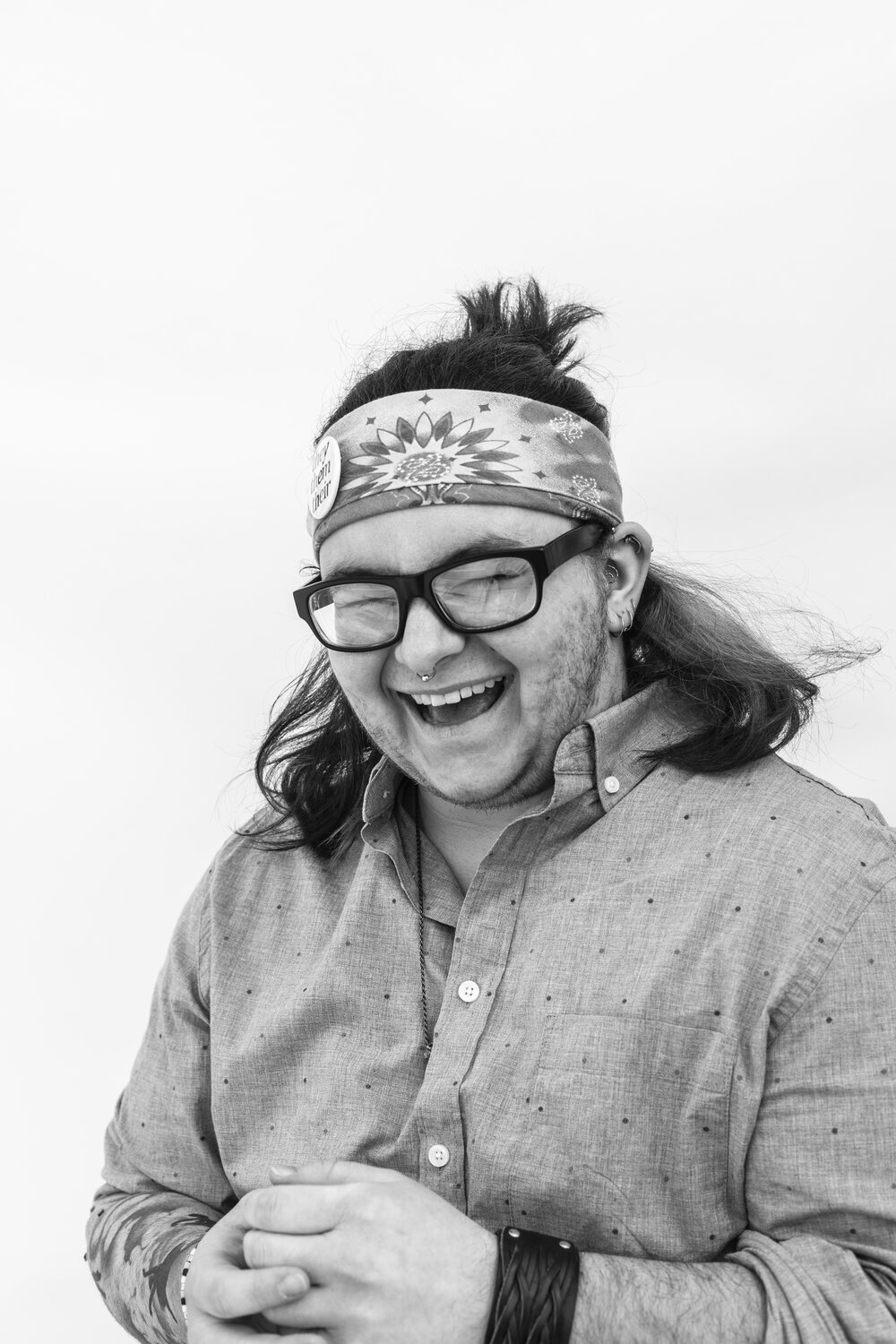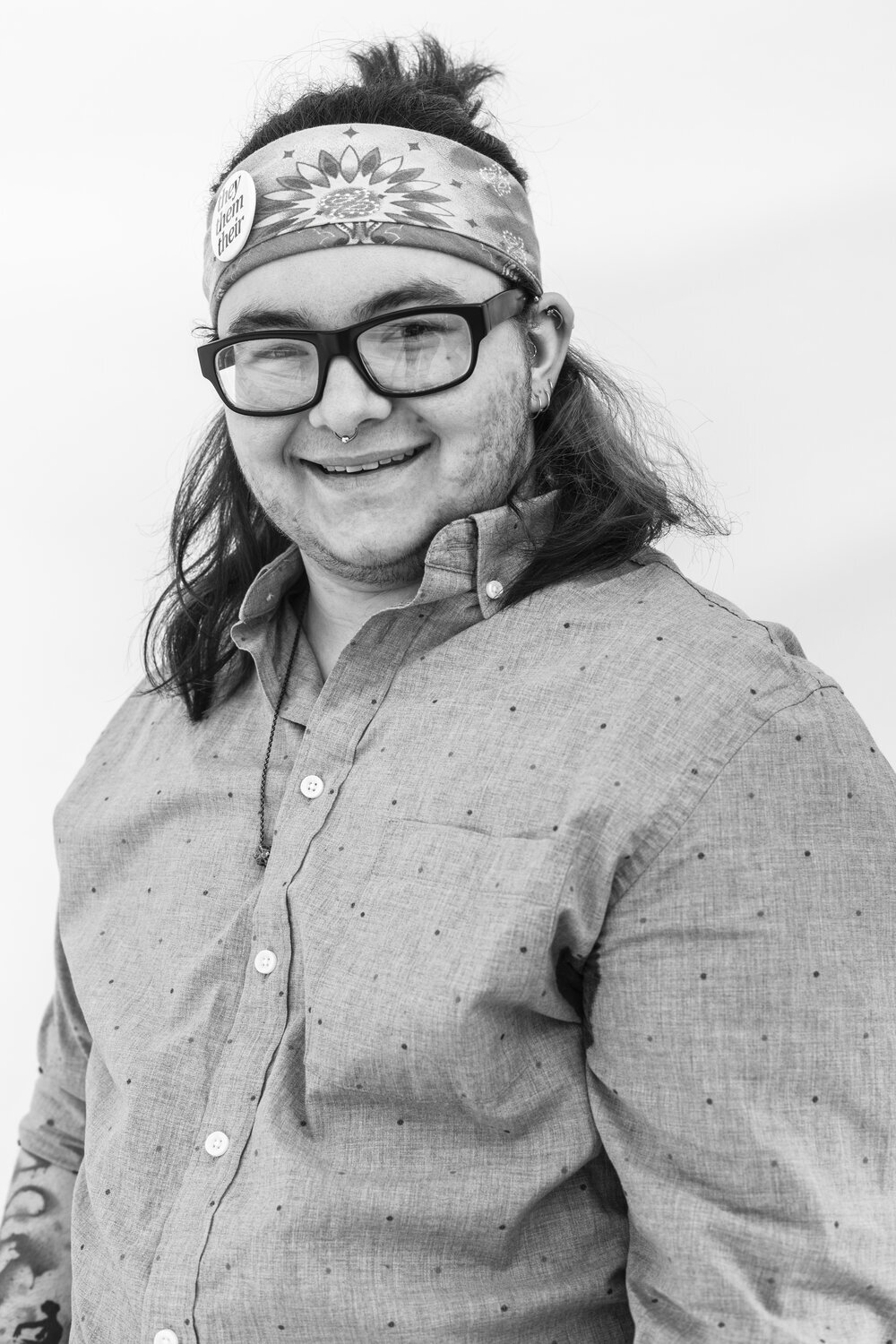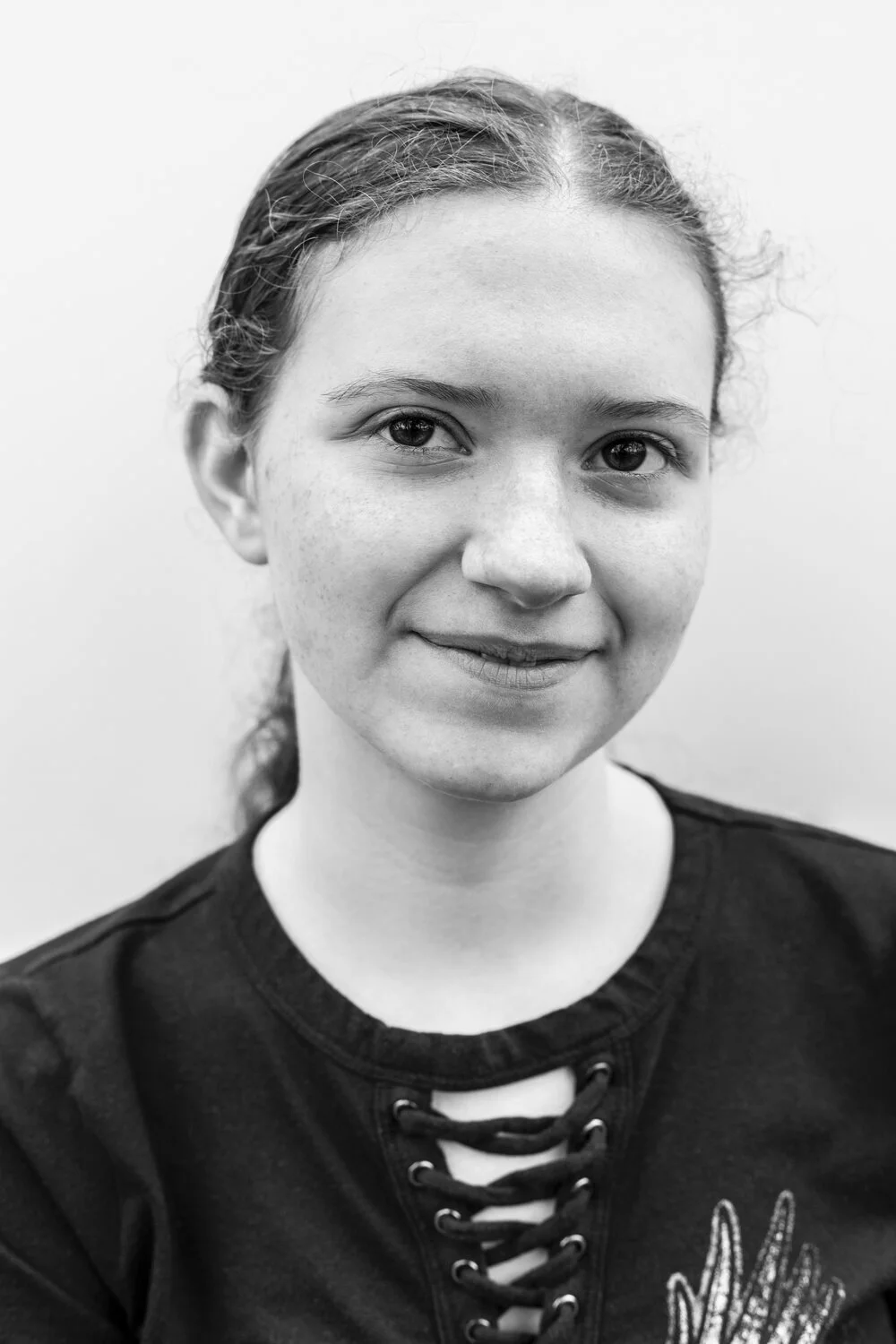AUBREY
OKLAHOMA | SERIES # 4
“I’m not straight and not a girl.” That’s how I started when I came out to my parents. I felt it was easier to start with what I wasn’t than what I was. I feel like I’ve always liked having choices, and when I figured out my sexuality and gender, that made even more sense.
For my sexuality, I generally say I’m queer, but I use that more as an umbrella term. To be most accurate, I’d say I’m bisexual, but also on the ace spectrum. But I feel like not everybody needs to know that much about me, so queer works best.
As far as my gender identity goes, I am nonbinary, and my pronouns are they/them/their.
I realize nonbinary is a very new concept to a lot of people. To most of the people around me, I am the first trans person they’ve known, let alone nonbinary person. So my coming out has also been an educational experience for those I’m coming out to.
Because using singular they pronouns is a new concept to a lot of people, they make mistakes. I have to be patient, but one of the most important things I learned is enforcing boundaries. For example, after a grace period of learning, I began actively correcting people when they used the incorrect pronouns. I have to let people know they were given sufficient time to adjust, and if they want to remain part of my life, they need to afford me the respect of using the correct pronouns.
During the grace period, when many of my family members and friends/coworkers were still struggling to use the correct pronouns, the LGBT+ youth group I attended became even more important to me. I knew I wouldn’t have to worry about being misgendered when I was there. Everyone is so accepting and loving. It’s so important to find and surround yourself with those who support you.
I make it a point that whenever I meet someone new, who I know I’ll likely have further encounters with, to introduce myself by saying, “Hi, I’m Aubry. I’m nonbinary, which means I’m not a guy and not a girl, and my pronouns are they/them/their instead of she/her or he/him.” I also always note that I’m very open and will answer questions that they might have since I realize this may be a new concept to them because I believe that the best way to move forward is with open communication.
When I came out to my parents as not straight and not a girl, I wasn’t concerned about being kicked out or anything. I have a very liberal and understanding family. I wasn’t concerned about talking about my sexuality, in fact I was pretty sure they knew I was somewhere on the LGB+ part of the spectrum. I was more concerned about coming out as nonbinary, on the trans spectrum, but just because of how it would change things. I’ve since realized how important establishing boundaries can be and that I can’t control other people’s reactions. Everyone will react how they will and it’s not my job to minimize myself and my identity to make things easier for others.
I think the most important things about coming out are your own safety in doing so and knowing that it’s not a race, to take as much time as needed. You are never obligated to come out to someone. One thing I feel has been good for me to realize is that no one is entitled to know everything about me. I can decide who gets to know what and to what extent. Sometimes there are real concerns of safety, and you should always weigh what would be best and safest for you.
Also, as people seem to be coming out younger and younger now, it’s important to recognize that everyone has their own journey and it’s not a race. There is no shame in coming out at an older age or in changing identities or labels as you grow and realize something else fits better. It’s not bad to take time to discover who you are or when or how you’d like to start the coming out process.
Doubt is something that I feel we don’t talk about within the community. I would just want anyone who needs to hear it know that doubt is perfectly natural. We live in a hetero- and cis-normative society and it’s understandable if that sometimes causes you to wonder. What if I’m not trans enough? Am I really gay if I liked that one person in grade school? Etc. I feel that we don’t talk about it because we don’t want that to be used against us in any way, which is a valid point in and of itself. We live in a very binary and biased society, on many different fronts, and if we are to not just survive, but thrive, there comes a point that we simply have to own who we are. You are enough. You are the only one who knows how you truly feel, so you are the only voice that matters in determining your identity and story.
The great thing about coming out and educating those unfamiliar with the terms that apply to you is that you can see the ripples as they go out and educate also. You can see the change in real time. It’s really amazing. I think there are a lot more allies and safe people than we sometimes realize, and it just takes some open communication to find them.
Everyone’s stories are important. For a while, I didn’t think that mine would benefit anyone. I mean, there are tons of people who’ve had to go through so much more than I have who need to be heard. But just by being myself, I’ve had more and more people feel comfortable enough to come up to me with questions, and this is because I’ve made it known that I’m open to communication and education. No matter what, everyone has a story, and it will reach those who need to hear it.
I think the best thing you can do is find the representation around you and, if you can, be the representation for someone else.

